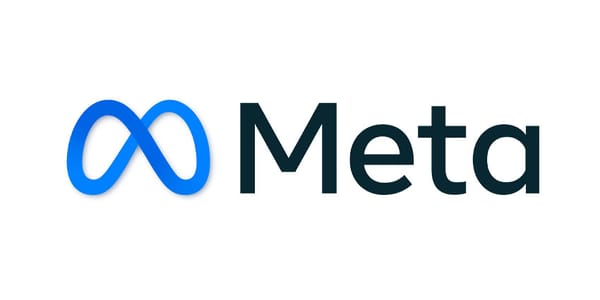The Future of Nanotechnology in Healthcare: Innovations and Challenges
Explore how nanotechnology is set to revolutionize healthcare in the next decade. Discover advancements in drug delivery, diagnostics, cancer treatment, and regenerative medicine. Learn about the challenges and future outlook for nanomedicine and its impact on patient care.

Table of Contents
- Introduction to Nanotechnology in Healthcare
- Current Applications of Nanotechnology in Healthcare
- Future Trends and Innovations
- Challenges and Considerations
- The Future Outlook
Introduction to Nanotechnology in Healthcare
Nanotechnology involves working with materials at the nanoscale, which is between 1 and 100 nanometers. To put this in perspective, a nanometer is one-billionth of a meter. This technology allows scientists to manipulate individual molecules and atoms, leading to breakthroughs in various fields, particularly healthcare. By enhancing drug delivery, improving diagnostics, and developing new treatments, nanotechnology is set to redefine medical practices.
Current Applications of Nanotechnology in Healthcare
- Drug Delivery: Nanotechnology has made significant strides in drug delivery systems. Nanoparticles can deliver medications directly to targeted cells, such as cancer cells, reducing side effects and improving treatment effectiveness. This approach is already being used for specific therapies, but future advancements will make these systems more precise and widely applicable.
- Diagnostic Tools: Nanotechnology improves diagnostic imaging and tests by enhancing contrast and sensitivity. For example, nanoparticles are used in magnetic resonance imaging (MRI) and other imaging techniques to provide clearer and more detailed images, enabling earlier and more accurate disease detection.
- Therapeutic Devices: Nano-enabled devices, including implants and prosthetics, are becoming more sophisticated. These devices are designed to integrate better with the human body, offering improved functionality and reduced risk of rejection.
Future Trends and Innovations
Enhanced Drug Delivery Systems
In the next decade, we can anticipate even more advanced drug delivery systems. Researchers are developing nanoparticles that can deliver drugs with high precision, targeting specific cells or tissues while minimizing harm to healthy ones. This will lead to personalized medicine, where treatments are tailored to an individual's genetic profile and disease state.
Nanodiagnostics and Imaging
Future innovations in nanodiagnostics will involve the creation of nanoscale sensors and imaging agents that provide real-time, high-resolution images of biological processes. These advancements will enhance our ability to detect diseases early, monitor disease progression, and evaluate treatment responses more effectively.
Nanomedicine for Cancer Treatment
Nanomedicine is expected to advance significantly in cancer treatment. Researchers are working on nanoparticles that can specifically target and destroy cancer cells without affecting healthy cells. This approach aims to improve the effectiveness of cancer treatments and reduce the side effects associated with conventional therapies.
Regenerative Medicine and Tissue Engineering
Nanotechnology will play a crucial role in regenerative medicine and tissue engineering. Nano-materials and scaffolds will be used to support the growth and repair of damaged tissues and organs. These innovations could lead to breakthroughs in treating injuries, degenerative diseases, and even aging-related conditions.
Challenges and Considerations
Safety and Toxicity
One of the main concerns with nanotechnology in healthcare is the safety and potential toxicity of nanoparticles. Since these particles are so small, they can enter cells and tissues, potentially causing unexpected reactions. Ongoing research is needed to ensure that nanoparticles are safe for use in medical applications.
Regulation
The regulation of nanotechnology in healthcare is still evolving. Developing comprehensive guidelines and standards is essential to ensure that nanomaterials are used safely and effectively. Regulations will need to address concerns about safety, efficacy, and ethical use.
Ethical Concerns
Nanotechnology raises several ethical issues, such as privacy concerns related to the use of nanosensors and the potential for misuse of technology. Addressing these ethical considerations is important for the responsible development and application of nanotechnology in healthcare.
Cost and Accessibility
Advanced nanotechnology-based treatments and diagnostic tools may be costly, which could limit their accessibility. Ensuring that these innovations are affordable and available to a broad population is crucial for maximizing their impact.
The Future Outlook
As nanotechnology continues to evolve, its impact on healthcare will likely be transformative. From enhancing drug delivery and diagnostic capabilities to advancing cancer treatment and regenerative medicine, nanotechnology holds the promise of significantly improving patient outcomes and healthcare delivery.
In the USA and India, the integration of nanotechnology into healthcare systems will bring about new opportunities for better treatment options and improved patient care. By addressing challenges related to safety, regulation, and accessibility, we can harness the full potential of nanotechnology to revolutionize the future of medicine and healthcare.
The Key Insights from Recent Research
According to recent research published on NCBI, nanotechnology is already making strides in several key areas:
- Drug Delivery: Nanoparticles are being developed to target specific cells, enhancing the precision of drug delivery and reducing side effects.
- Diagnostics: Advanced nanoscale sensors and imaging agents are improving disease detection and monitoring.
- Therapeutic Devices: Nano-enabled devices are offering better integration with the human body, improving functionality and reducing rejection risks.
Addressing Challenges
Research highlights the need to address safety concerns and regulatory issues to fully realize nanotechnology's potential in medicine. Understanding the toxicity of nanoparticles and establishing robust guidelines will be crucial for their successful implementation.
Looking Ahead
The next decade will be exciting for nanotechnology in healthcare, with ongoing research expected to lead to significant advancements in drug delivery, diagnostics, and treatment options. By overcoming current challenges and embracing innovative approaches, nanotechnology has the potential to reshape the future of healthcare and improve patient outcomes worldwide.




